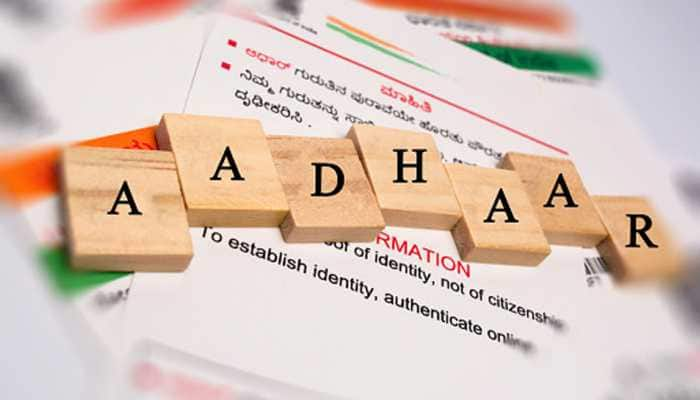Ram Nath Kovind elected India's 14th President, says verdict 'evidence of greatness of Indian democracy'
Kovind got 65.65 percent of the total valid vote value of 10,69,358, Meira Kumar got 34.35 percent.
Trending Photos
New Delhi: National Democratic Alliance (NDA) candidate Ram Nath Kovind on Thursday defeated former Lok Sabha speaker Meira Kumar in the presidential polls by a huge margin of votes to become India's 14th president.
Kovind secured a total of 2,930 votes, carrying a value of 7,00,244, while the former speaker got 1,844 votes with a value of 3,67,314 in a straight fight.
Declaring the result, Returning Officer and Lok Sabha Secretary General Anoop Mishra said Kovind had got the required votes under the quota allotted to him in the transferable vote system under the Presidential and Vice Presidential Elections Act.
Kovind got 65.65 percent of the total valid vote value of 10,69,358, Meira Kumar got 34.35 percent.
"I declare Ram Nath Kovind as duly elected to the Office of President," Mishra said.
After the verdict, Kovind said, "My election as the president is evidence of the greatness of Indian democracy."
"I never aspired to be the president; my win is a message to those discharging their duties with integrity," Kovind said, adding, "I feel very emotional today and I will represent all those struggling to make a living.
Kovind, 71, who will be only the second Dalit to occupy the highest constitutional position, asserted that protecting the Constitution and maintaining its dignity would be his duty.
He said he never thought or aspired to be the president but his "tireless service" to his society and country had brought him to this position.
This sense of tireless service was an "Indian tradition" and his election as the president was a symbol of the greatness of Indian democracy, Kovind told reporters at his Akbar Road residence.
"It is a very emotional moment for me personally. It is raining a lot in Delhi today and it reminds me of days when I would stay in my paternal village. It was a 'kachcha' home of mud walls. The straw roof would not be able to stop water during rains. We all brothers and sisters would huddle around a wall, waiting for the rains to stop," he said.
"There would be so many Ram Nath Kovinds in the country today, getting drenched in rains, doing farm work, labour and sweating it out so that they can get their evening meals. I want to tell them that this Ram Nath Kovind of Paraunkh village is going to Rashtrapati Bhavan as their representative," the president-elect continued.
His election to a position held by distinguished personalities like Rajendra Prasad, Sarvepalli Radhakrishnan, A P J Abdul Kalam and Pranab Mukherjee had given him a sense of huge responsibility, he said.
The presidential election on July 17 saw close to 100 percent polling.
A total of 771 members of Parliament and 4,109 legislators were eligible to cast votes.
The two nominees are from the Dalit community and had canvassed hard by visiting states to seek support of legislators.
A lawyer by profession, Kovind has worked extensively in Uttar Pradesh and Bihar.
Kovind has been the Bharatiya Janta Party (BJP) Scheduled Caste Morcha chief (1998-2002) and the President of the All-India Koli Samaj.
He also served as the national spokesperson of the party. The saffron party had even tired to project him as an alternative to Mayawati in Uttar Pradesh.
Kovind was enrolled as an advocate in 1971 with the Bar Council of Delhi. He became the Advocate-on-Record of the Supreme Court in 1978 and practised in Delhi High Court and Supreme Court for about 16 years till 1993.
He was appointed as the Governor of Bihar on August 8, 2015.
He was elected to the Rajya Sabha from Uttar Pradesh during the two terms of 1994-2000 and 2000-2006.Kovind served as member of the board of management of the BR Ambedkar University, Lucknow.
He also served as member of board of governors of Indian Institute of Management, Kolkata.Kovind also represented India in United Nations (New York) and addressed the UN General Assembly in October, 2002.
(With agency inputs)
Stay informed on all the latest news, real-time breaking news updates, and follow all the important headlines in india news and world News on Zee News.
Live Tv







)
)
)
)
)
)
)
)
)
)
